https://philaholisticclinic.com/treatment-for-dry-eyes/
Dry eyes
Treatment for dry eyes
Treatment for dry eyes often depends on the cause of your condition. Looking at a computer or digital device reduces blinking frequency by 60%, so greasy tears don’t flow down your eyes to lubricate and nourish them. Add to that stress or insufficient sleep, which undermines the immune system. These tears eventually coagulate in the meibomian glands with an uncontrolled bacterial flora.
Traditional treatments for dry eye include: artificial tears, lacrimal plugs, prescription eye drops: Restasis and Xyidra, steroid drops, antibiotic drops, proprietary serum drops (making eye drops from your own plasma), and prescription drugs that cause dry eyes. Listed below are some of the most common approaches to treatment for dry eyes.
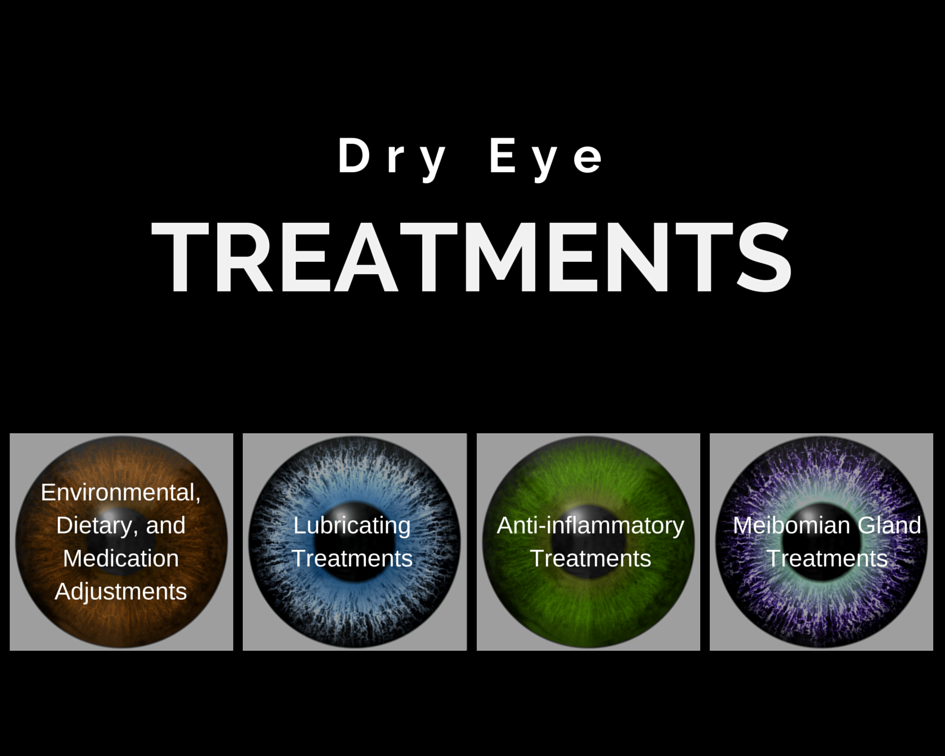
Lacrimal plugs
This is one of the treatments for dry eyes in which your eye doctor might use plugs to block the drainage holes in the corners of your eyes. This is a relatively painless, reversible procedure that slows tear loss.
If your condition is severe, the plugs may be recommended as a permanent solution.
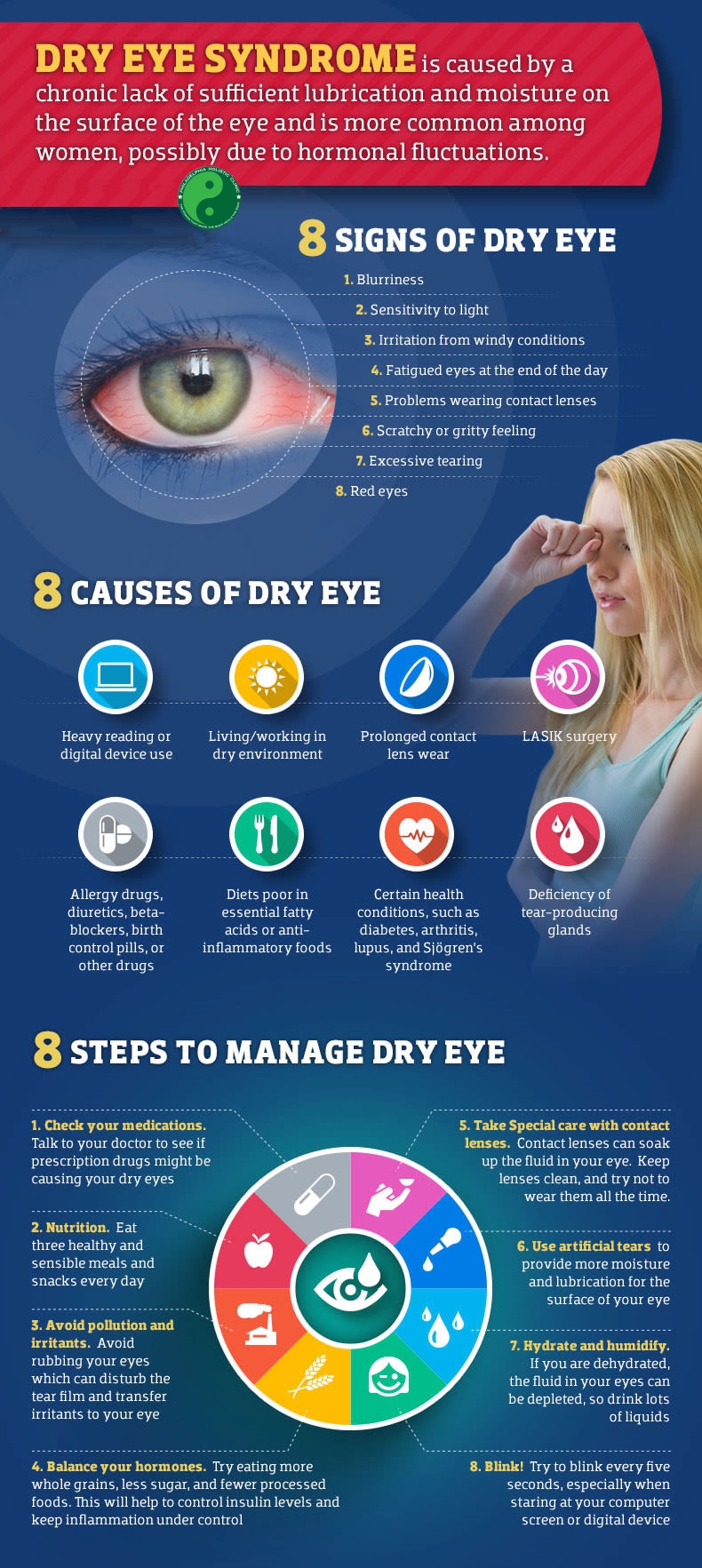
Surgery Options
This is one of the ways on how to help dry eyes, it involves the closure of the holes in the inner corners of your eyelids. Closing your tear drainage holes allows the limited volume of tears to remain on your eyes longer.
Medicines for dry eyes
Medicines for dry eyes are another way on how to help dry eyes. The most commonly prescribed medicine for dry eyes syndrome is an anti-inflammatory called cyclosporine (Restasis). The drug increases the number of tears in your eyes and lowers the risk of damage to your cornea.
Alternative medications include cholinergic, such as pilocarpine. These medicines for dry eyes help stimulate tear production. If another medication is causing your eyes to become dry, your doctor may switch your prescription to try to find one that doesn’t dry out your eyes.
However, another option of treatment for dry eye that a lot of people are considering is the natural treatment for dry eye options. This is because natural remedies for dry eyes help relieve dry eyes without any side effects.
Eye drops for dry eyes
Cyclosporine (Restasis) is the leading medicine in the category of eye drops for dry eyes that treats inflammation that causes eye dryness. This type of inflammation usually stems from a condition known as keratoconjunctivitis sicca, also called dry eye syndrome. This eye drop for dry eyes is usually used twice a day to help increase tear production. Cyclosporine is recommended for long-term use. It’s only available as a prescription, and it can cause side effects.
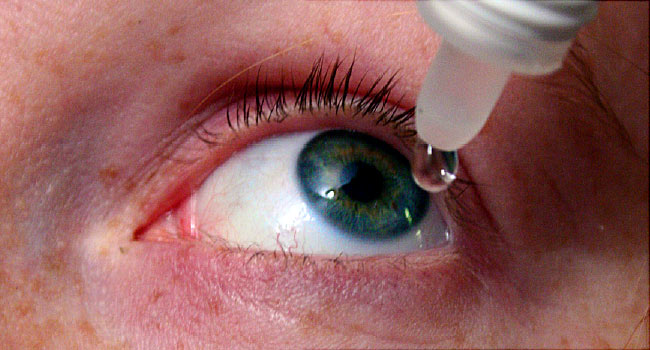
Eye drops for dry eyes come in two forms: those with preservatives and those without.
Preservatives are added to eye drops for dry eyes to help prevent the growth of bacteria. Some people find eye drops for dry eyes with preservatives irritating to their eyes. They’re generally not recommended for people with more serious eye dryness. Eye drops for dry eyes with preservatives include HypoTears, Soothe Long-lasting, and Eye Relief.
Eye drops for dry eyes without preservatives are recommended for people with moderate or severe dry eyes. They’re sometimes packaged in single-use containers.
What is dry eyes?
Are you having very dry, irritating, or gritty eyes? You may have dry eye syndrome which is very common and affects people of all ages. It has a higher occurrence rate in countries that are windy, dry, or dusty.
Dry eyes is a condition whereby the lacrimal system or in layman’s terms the tear-producing system is malfunctioning. This could either be that it isn’t producing enough aqueous tears or the lipid layer over the tear film produced by meibomian glands is insufficient.
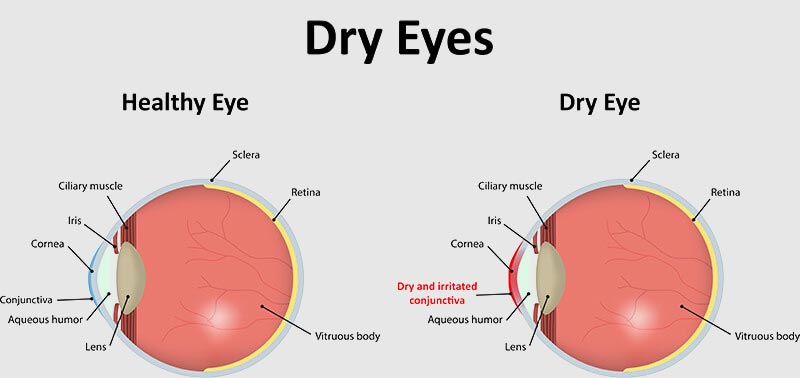
Dry eye syndrome can occur at any age, and in people who are otherwise healthy. It is more common with older age when the individual produces fewer tears. It is also more common in women than in men. It is more common in places where malnutrition results in a vitamin A deficiency.
What causes dry eyes?
The question ‘What causes dry eyes?” doesn’t have a single answer. It could be anything hormonal changes, genetic predisposition, eye inflammation, virus infection, etc. Both men and women can get dry eyes. However, it is more common in women especially those who have gone through menopause.
Listed below are some of the causes for dry eyes:
- Environmental irritants, such as wind, low humidity, air-conditioning, sun exposure, smoke, chemical fumes, or heat are some of the causes of dry eyes.
- Skin diseases in or around the eyes, or diseases of the eye glands
- Allergies
- Eye surgery, such as refractive surgery (LASIK) and cataract surgery
- Chronic inflammation of the eye
- Infrequent blinking or a condition called exposure keratitis, in which the eyelids don’t close completely during sleep
- Various medicines, such as antihistamines, nasal decongestants, tranquilizers, blood pressure medication, Parkinson’s disease medication, and antidepressants
- Excessive or insufficient vitamin intake
- Long-term contact lens wear
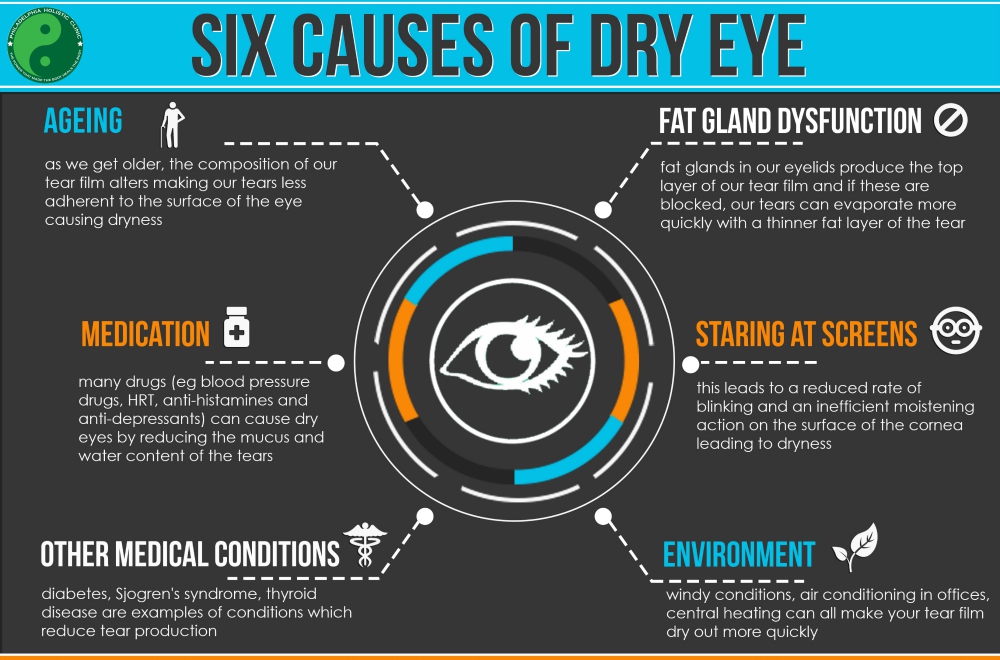
Other causes of dry eyes are:
- Certain vision problems often result in dry eyes as a symptom
- Spending long periods in front of screens is a common cause of dry eyes
- Age: Age is another cause of dry eyes. Dry itchy eyes are experienced by 75% of those over 65, by which time you have 40% of the volume of tear film that you had when you were 18.
- Post-menopause gives rise to a decrease in estrogen production which has been linked to poor functioning of the meibomian gland. This gland produces an oily substance called meibum which lies on top of the tear film and protects the tear film from rapid evaporation.8
- Some other causes of dry eyes are smoking, drinking a lot of coffee, wearing contact lenses, being in air-conditioning or heated places with low humidity.
Types of Dry Eye
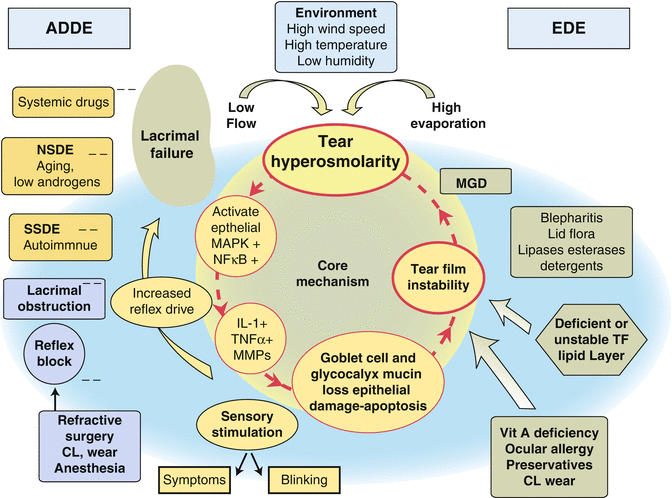
There are two types of dry eye:
Aqueous tear-deficient dry eye
The eyes’ lacrimal glands fail to produce enough of the middle aqueous layer of tears, resulting in low tear production.
Evaporative dry eye
The eyes’ meibomian glands don’t produce a strong outer lipid layer of tears, resulting in tears that evaporate too quickly. In addition to dry eye syndrome, dry eye is also sometimes known as:
- Keratoconjunctivitis sicca
- Dysfunctional tear syndrome
- Lacrimal keratoconjunctivitis
- Evaporative tear deficiency or aqueous tear deficiency
Symptoms of dry eyes
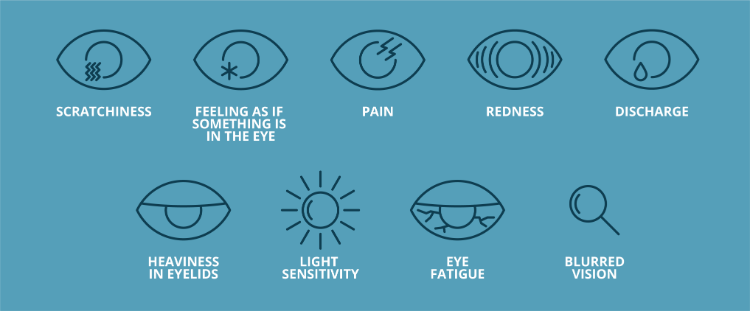
The most common symptoms of dry eyes are:
- Burning
- Pain
- Redness
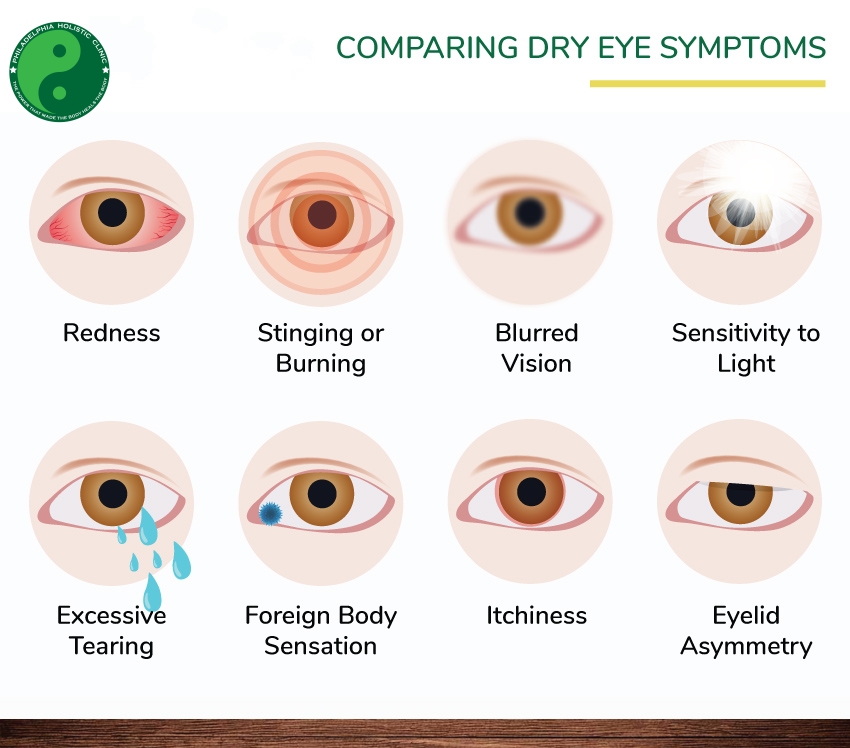
Other common symptoms of dry eyes include:
- Watery tearing
- Stringy mucus
- Eyes get tired faster than they used to
- Difficulty reading or sitting at the computer for long periods
- Blurry vision
- The feeling of having sand in your eyes
Natural remedies for dry eyes – effective and safe treatment for dry eyes.
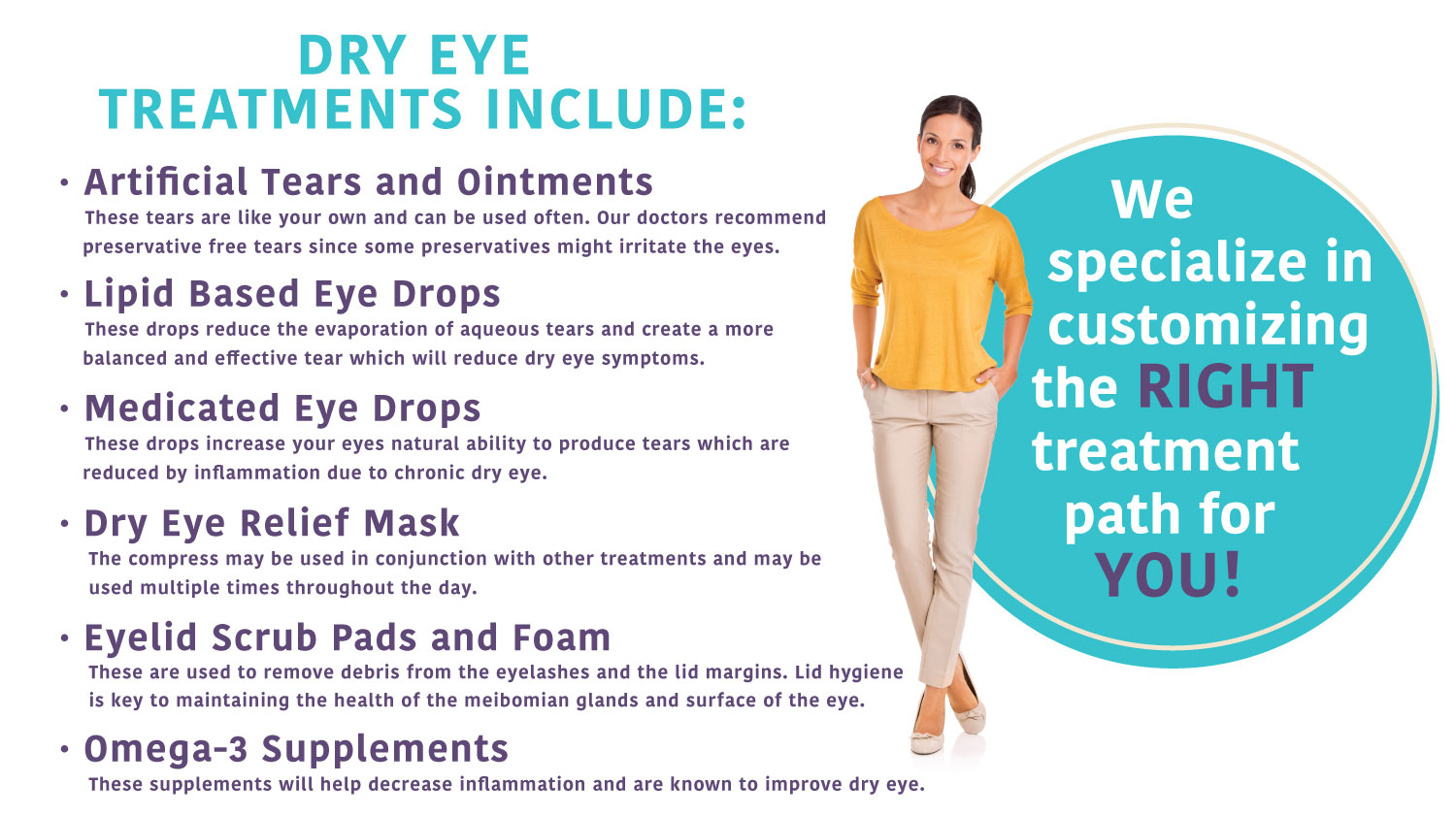
Natural remedies for dry eyes has been proven to be effective and it has helped relieve symptoms of dry eyes.
Listed below are natural remedies for dry eyes:
Home remedies for dry eyes – the most common form of natural treatment for dry eyes.
Home remedies for dry eyes are natural remedies for dry eyes that are easy to achieve at home. Listed below are home remedies for dry eyes
Blink More
- Staring at a computer curbs the number of times you blink per minute. So try to blink often when you’re online. Follow the 20/20 rule: close your eyes every 20 minutes for 20 seconds. Another simple trick to keep your eyes moist when at the computer: Set your screen below eye level. You won’t have to open your eyes as wide, which may help slow tear evaporation between blinks.
Eat (Naturally) Oily Fish
- Salmon and tuna, for example, or sardines, trout, and mackerel all contain omega-3 fatty acids. Research suggests these healthy fats help the oil-making glands in your eye work better, which can ease irritation. Other foods naturally high in omega-3 fats include walnuts, vegetable oils (like canola and soybean oil), and flaxseed. You can also take omega-3 fatty acids as a pill or tablet. Talk to your doctor before you start any new supplement, just to make sure it won’t affect any conditions you have or the medicines you take.
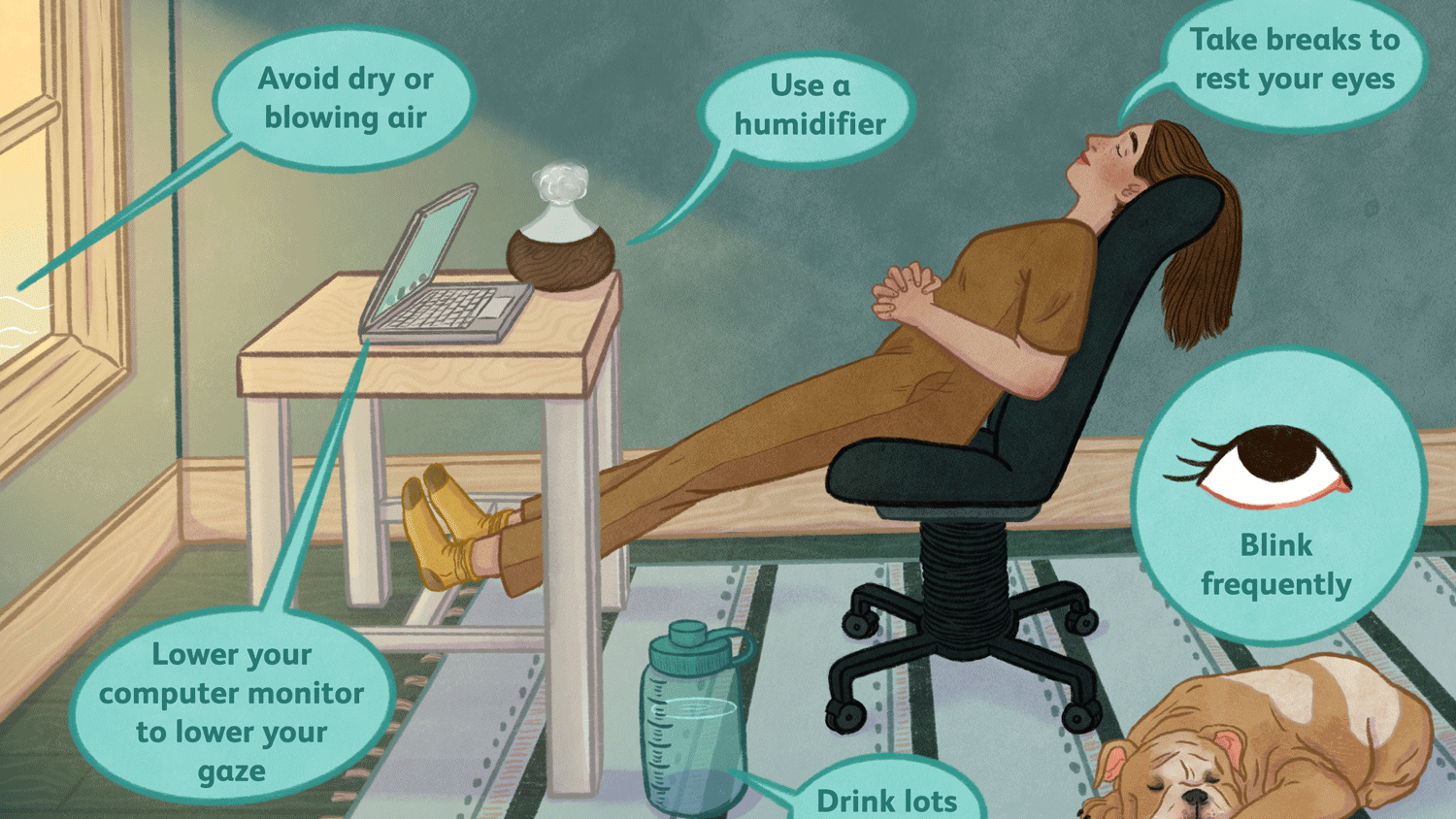
Stay Hydrated
- Every part of your body needs water to stay healthy, including your eyes. Drinking water is another home remedy for dry eyes that helps keep them moist. But don’t wait until you’re thirsty to sip water. By then, you may already be slightly dehydrated. Instead, aim for eight to 10 glasses throughout the day. If you don’t like plain water, any other liquid that doesn’t have alcohol or caffeine will do. Water-rich foods like cucumbers and watermelon also count.
Wear Wraparound Sunglasses
- This style can help protect your eyes from drying winds, which cause tears to evaporate more quickly. At home, avoid blowing air from your hairdryer, air conditioner, or fan toward your eyes.
Diet for dry eyes – an essential part of any natural treatment for dry eyes
Diet for dry eyes is another relief for dry eyes, the body absorbs nutrients better when you eat food rather than taking a pill.
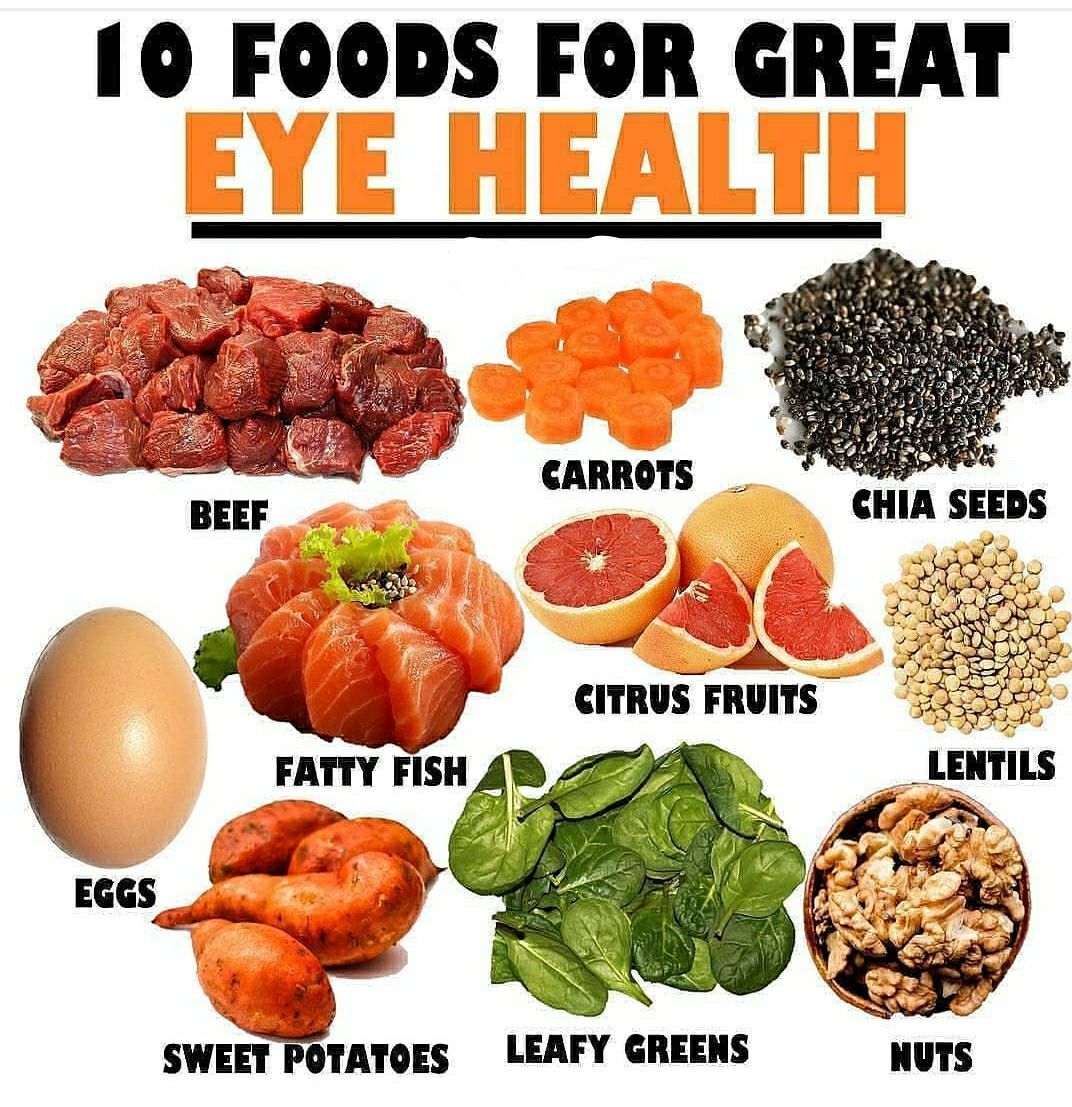
Listed below are the main rules of diet for dry eyes
Fish
- Fish is a diet for dry eyes that contain omega-3 fatty acids. Omega-3 fatty acids can reduce inflammation in the eye, especially in the tear ducts. Having healthy tear ducts makes it easier to have healthy, high-quality tears. Most fish contain omega-3s. Fish with the most nutrients are salmon, halibut, herring, and tuna. You can also get omega-3 fatty acids from mollusks like oysters.
Seeds
- Seeds, like chia seeds and flaxseed, are another good source of omega-3 fatty acids. They’re a great alternative to fish for vegetarians and vegans which is a diet for dry eyes. In fact, flaxseed oil is often a recommended alternative to fish oil and other fish-based omega-3 supplements. Seeds can also be good to have besides a variety of fish to have a well-rounded diet. For the healthiest eyes and better health, your diet should contain enough protein and omega-3 fatty acids.
Nuts
- Nuts are high in both omega-3 and Vitamin E which is a relief for dry eyes. Vitamin E is an antioxidant much like Vitamin C. It can fight age-related damage, including damage to tear production. The best nuts that are rich in omega-3 fatty acids and Vitamin E are walnuts and cashews.
Herbs for dry eyes – great home-based treatment for dry eyes
Not many herbs for dry eyes have been proven scientifically to be effective in the relief of dry eyes, but some of these herbs below help reduce the symptoms of dry eyes.
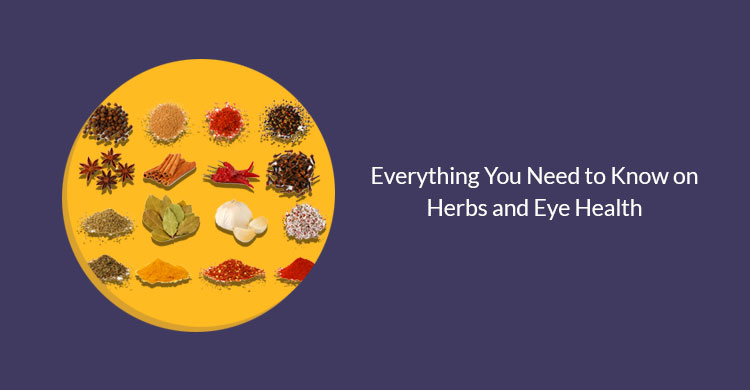
Chamomile
- Chamomile tea is one of the herbs for dry eyes that have been effective. To make an eyes wash, brew a weak tea with dried chamomile flower tops along with distilled water. Strain the mixture with the help of a coffee filter and let the liquid cool down. Apply it every few hours for a couple of days.
Fennel seeds
- Fennel seeds are a very good medicine that causes relief for dry eyes. Take two teaspoonfuls of fennel seeds and add them to a glass of water and boil this concoction for the next few minutes. Let it and then strain the mixture. Use it as eyes wash two or three times a day.
Calendula
- Calendula is another relief for dry eyes. It is deemed to be very soothing to both the inner and outer parts of the eyes. It helps to reduce itching, swelling, and inflammation.
Acupuncture for dry eye – ancient Chinese treatment for dry eyes
Acupuncture for dry eyes is an effective traditional natural remedy for dry eyes that is safe and effective for the treatment of dry eyes. In a controlled study, acupuncture for dry eyes significantly enhances the rate of positive patient outcomes for patients using lubricant eye drops for dry eye syndrome.
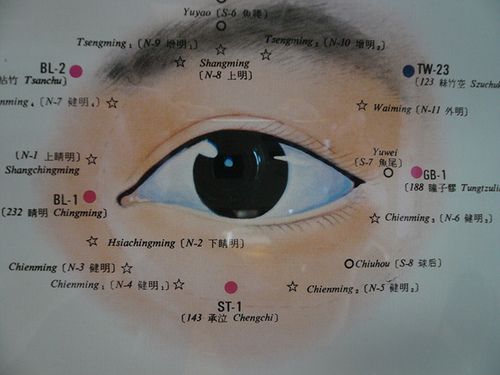
Patients receiving acupuncture for dry eyes plus eye drops for dry eyes had a 76.92% total effective rate. Patients receiving only eye drops for dry eyes had a 53.85% total effective rate.
Homeopathy for dry eyes – the #1 natural treatment for dry eyes
Homeopathy for dry eyes is sourced out of natural substances and is completely safe with zero side effects. Homeopathy for dry eyes also provides relief from symptoms but also strikes at the root of the problem leading to Dry Eyes.
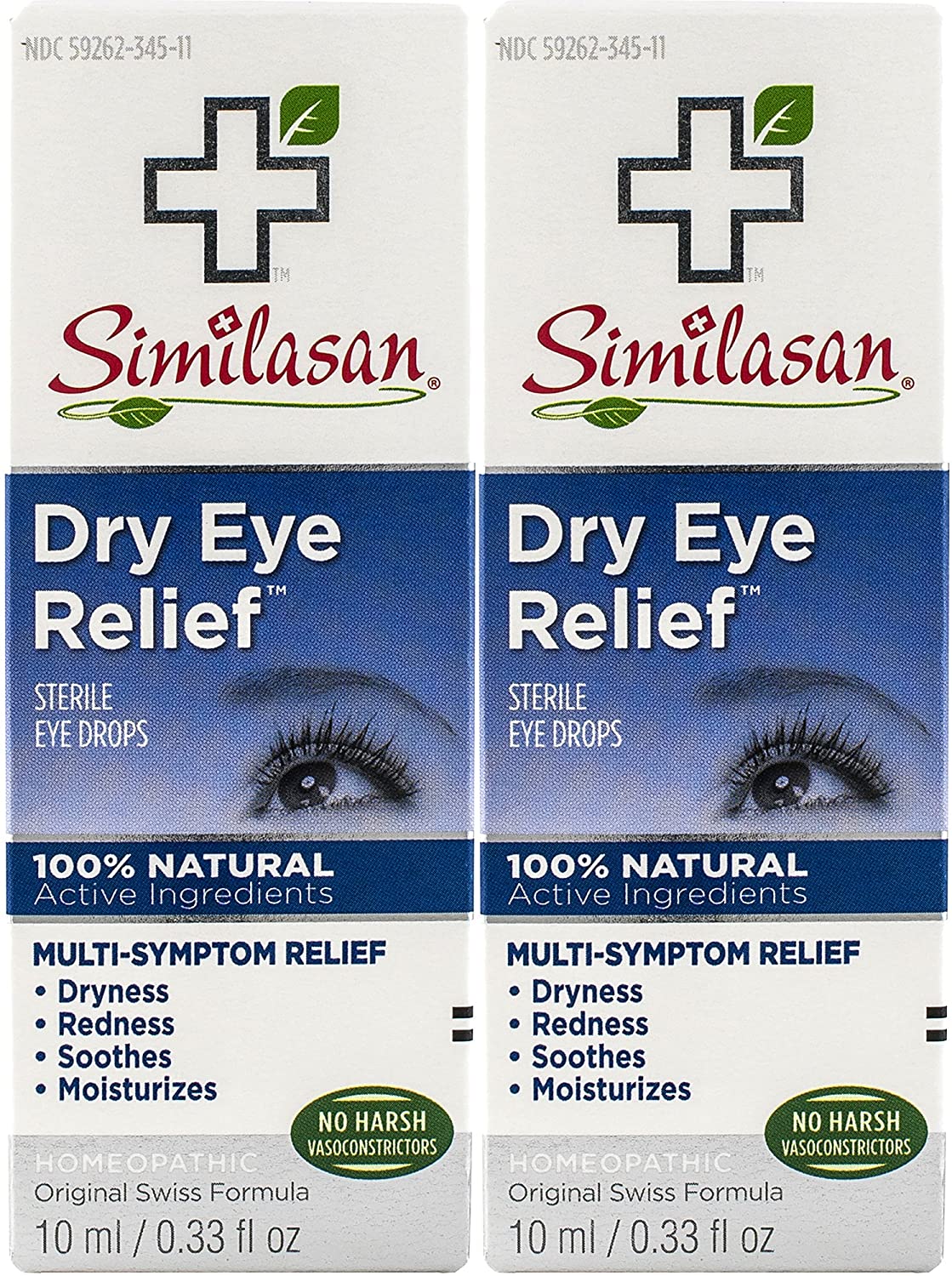
Listed below are homeopathic remedies for dry eyes
Aconite
- Aconite is the top homeopathic remedy for dry eyes that acts as an excellent agent to decrease the redness of the eyes. Aconite is also a natural medicine of great help in providing relief from pain in the eyes which gets worse with the motion of the eyes.
Sulphur
- Sulphur is the best homeopathic remedy for dry eyes that is used to control itching and burning in eyes with dryness.
Natrum Mur
- Natrum Mur can help in relieving burning, smarting pain in eyes with dryness in eyes on reading. Natrum Mur is also the best remedy for sand-like sensation in eyes and blurring or dimness of vision with Dry Eyes while reading.
Conclusion
Dry eyes are the number one vision problem treated by optometrists and ophthalmologists. There are many natural remedies that can help relieve any unpleasant symptoms of dry eye you may be experiencing. In most cases, lubricating eye drops will provide sufficient relief from symptoms that arise as a result of exhaustion or living in a dry climate. These drops compliment your natural tears with artificial tears, to provide added hydration and protection.

Holistic medicine approaches, such as acupuncture, homeopathy, reiki, etc. are highly effective and safe for the treatment of dry eyes.
For your appointment with our medical director, doctor-homeopath, Victor Tsan, MD contact our clinic (267) 284-3085 or use our online application
I am really happy that i have been cured from (HERPES SIMPLEX VIRUS) with
ReplyDeletethe herbal medicine of dr.chala, i have been suffering from this disease
for the past 2 years and 7 mouth without solution until i came across the
blog of this doctor who have cure so many people with his herbal medicine,
i also choose to give him a chance to help me and my wife, he told me what
to do and i kindly did it, and he gave us his herbal medicine and direct me
on how to use it, i also follow his instructions for use and he ask us to
go for a check up after a week and some days which i did, to my greatest
surprise our result came out as negative, and ever since then, we have had
no more outbreak and we are healthy, we are really happy that there is
someone like this doctor who is ready to help anytime any day. he also
render cure to the following diseases below
.DIABETES
.CANCER
.HEPATITIS
.HIV/AIDS
.P COS4 contact him via whats app +2348165102815 or email dr.chalaherbalhome@gmail.com